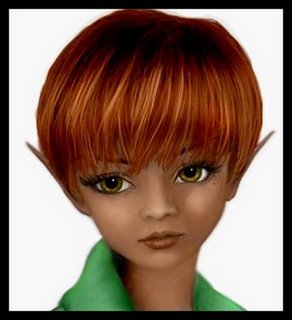Artemis Fowl - Uma sugestão de livros para as férias
 Você tem filhos na pré-adolescência e não sabe o que conversar com eles? Bom, a culpa é de quem? Sei, sei, você não tem tempo para compartilhar o universo deles, existe o tal gap geracional etc. Ok. Bom, dou aqui uma sugestão que funcionou comigo: dividir com eles, durante as férias, a experiência de leitura de livros de fantasia, os tais livros de múltiplos níveis de interpretação.
Você tem filhos na pré-adolescência e não sabe o que conversar com eles? Bom, a culpa é de quem? Sei, sei, você não tem tempo para compartilhar o universo deles, existe o tal gap geracional etc. Ok. Bom, dou aqui uma sugestão que funcionou comigo: dividir com eles, durante as férias, a experiência de leitura de livros de fantasia, os tais livros de múltiplos níveis de interpretação. Tales of talking animals and fantastical adventure aren't just for children, argues Ursula Le Guin - we can and should return to them throughout our lives
(...)
The modernists extended this misconception by declaring fantastic narrative to be intrinsically childish. Though modernism is behind us and postmodernism may be joining it, still many critics and reviewers approach fantasy determined to keep Caliban permanently confined in the cage of Kiddie Lit. The voice of Edmund Wilson reviewing J R R Tolkien is still heard, bleating: "Oo, those awful Orcs!" There should be a word - "maturismo", like "machismo"? - for the anxious savagery of the intellectual who thinks his adulthood has been impugned.
To conflate fantasy with immaturity is a rather sizeable error. Rational yet non-intellectual, moral yet inexplicit, symbolic not allegorical, fantasy is not primitive but primary. Many of its great texts are poetry, and its prose often approaches poetry in density of implication and imagery. The fantastic, the marvellous, the impossible rode the mainstream of literature from the epics and romances of the Middle Ages through Ariosto and Tasso and their imitators, to Rabelais and Spenser and beyond. This is not to say that everybody approved of it. Conflict with religion and with realism always loomed. In the first great European novel, imagination and realism meet head-on, and their contest is the very stuff and argument of the book. Don Quixote is driven mad by chivalric fantasies - but what is he without his madness?
Shakespeare may have influenced English literature towards fantasy in a rather particular way. Spenser has Continental counterparts, but A Midsummer Night's Dream and The Tempest do not. Nowhere else in Europe did folk tale, legend, medieval romance, travellers' tales and individual genius coalesce in such works of imagination as those plays. That may be one reason why the literature I am talking about is very largely an English-language phenomenon.
It begins with, say, George MacDonald's At the Back of the North Wind and runs on through Alice in Wonderland and Through the Looking Glass, The Wind in the Willows, the Just So Stories and The Jungle Book, the Pooh books, Dr Dolittle, The Hobbit, The Once and Future King, Charlotte's Web, to my first three Earthsea books and all the serious imaginative fiction that continues to be published "for children" but is often read by adults. Does any other kind of fiction cross age-lines this way?
Realism does not. Realism comes in three separate age categories, fully recognised by publishers. Didactic, explanatory, practical and reassuring, realistic fiction for young children hasn't much to offer people who've already learned about dump trucks, vaccinations and why Heather has two mommies. Realistic "Young Adult" novels tend to focus tightly on situations and problems of little interest to anyone outside that age group. And realistic fiction for adults, with its social and historical complexities and moral and aesthetic ambiguities, becomes accessible to adolescents only as and if they mature.
(...)
Not all fantasy, of course. Few eight-year-olds get much out of Borges, Calvino or García Márquez. As the grip of realism weakened, the fantastic element began returning into adult fiction by various routes, magical realism being one of them. Borges and Calvino followed an older tradition, that of Voltaire and Kafka, the satiric or philosophic tale, or conte. Yet that form, when it uses fantasy, may become accessible to children, even if not intended for them. Animal Farm is read by kids of nine or ten, as is Gulliver's Travels.
Saint-Exupéry's The Little Prince is a lovely example of the conte deliberately written (and illustrated) for both the child and the adult, enigmatic yet entertaining to the child, ambiguously transparent to the adult, fully satisfying to both. Such "duplicity" certainly helps explain the durability of the books I am talking about. Lewis Carroll wrote to and for the child, with no winks and sniggers over her shoulder at the grown-ups. He clearly took pleasure in making the story equally absorbing for Charles Dodgson, the professor of mathematics, and for any adult who was ready to appreciate his jokes, tricks, politics and chess moves, his half-hidden intellectual game-playing.
(...)
The Harry Potter phenomenon, a fantasy aimed at sub-teenagers becoming a great best-seller among adults, confirmed that fantasy builds a two-way bridge across the generation gaps. Adults trying to explain their enthusiasm told me: "I haven't read anything like that since I was ten!" And I think this was simply true. Discouraged by critical prejudice, rigid segregation of books by age and genre, and unconscious maturismo, many people literally hadn't read any imaginative literature since childhood. Rapid, immense success made this book respectable, indeed obligatory, reading. So they read it, and rediscovered the pleasure of reading fantasy - which may be inferior only to the pleasure of rereading it.
Ursula Le Guin is the author of many fantasy novels and short stories, including "The Earthsea Quartet" (Puffin) [e dos premiados A Mão Esquerda da Escuridão e Os despossuídos]
Comentários